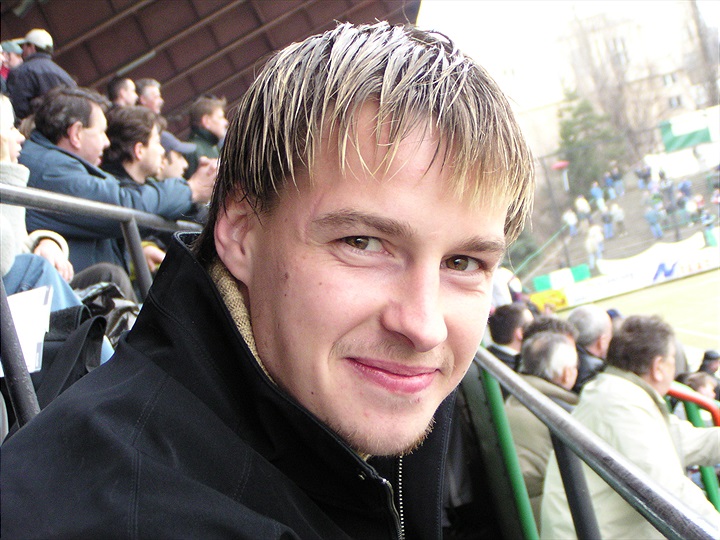Experiment in St. Petersburg, Russia
Libor Koubek<em>Exclusively for</em> <a href="http://www.fc-bohemians.cz/"><em>www.fc-bohemians.cz</em></a> <em>by Vaclav & Jeffrey Nerad<br /> <br /> </em>When Vlastimil Petrzela stepped down from his head coaching duties with Bohemians Prague during the spring of 2002 to dedicate his time to the search of a strong sponsor for the football team, it came as a surprise to many fans. After all, Petrzela had been associated with Bohemians for many years and the 2001/2002 campaign was shaping up to be one of the most successful ones in memory. The team was competitive on the field, challenging seemingly stronger clubs for the top positions in the league.<br /> <br /> Off the field, the story was much different. The team's management failed to secure enough funds to operate the team without having to sell their best players. Much to the dismay of Bohemians fans, defensmen Mares and Horak (photo) were traded to the richest team in the league, Sparta Prague, halfway through the 2001/2002 season. This fire sale did not only weaken the team's defensive corps; it seemed that the team's spirit got broken too.

Surprisingly, Mr. Petrzela emerged in the second division team of Mlada Boleslav where he formulated very ambitious plans. While he tried to woo many Bohemians players to Mlada Boleslav, he managed to steal only a few promising juniors. Mlada Boleslav did not set the world on fire with its performances during the autumn season finishing disappointingly in the second half of the pack.
Bohemians, in the meantime, started their 2002/2003 season under Borovicka in the way they would rather forget. With four losses after the first four games to his account, the management fired Borovicka and replaced him with his then assistant Dusan Uhrin jr. The team under its new young coach improved only temporarily to finish the autumn season dead last.
Dusan Uhrin jr., after re-working his strategic plan for the spring season, was given a vote of confidence by the club's management. The plan called for the club to acquire new players to strengthen key positions. This plan was implemented surprisingly well resulting in the influx of promising players (Bednar, Polodna, Rajnoch) as well as experienced veterans (Lesak, Zoubek, Obajdin, Kozel).
The Mlada Boleslav football club's preparations for the upcoming spring season took a different turn. Zenit St. Petersburg, the Russian elite division football club, contemplated a coaching change. With that in mind, Zenit approached Petrzela during the winter break. After a short courtship, Petrzela signed a deal to become the first Czech football coach in the premier Russian league.
Petrzela did not waste any time and got to work. He needed an assistant coach that would suit his style of coaching. Burying the proverbial hatchet, he called his old friend Borovicka and offered him a job. Borovicka accepted. Next on his agenda were players that could be easily molded into the style of football that he planned to preach. He turned to the familiar faces - formed "kangaroos" Horak, Mares and Sirl, now with Sparta Prague (although Shirl was at the time on a loan to Bohemians). Having filled his needs on defense and midfield, Petrzela turned his attention to the goal and forward positions. He expressed interest in Bohemians goalie Contofalsky and forward Hartig. To no one's surprise, both of them eventually accepted lucrative offers from Russia. Bohemians received much needed cash in exchange.
After the winter preparation at home, the newly constructed Bohemians team managed to start the spring season on a strong note, leaving the last place in the standings and fighting hard for its survival in the Gambrinus league. Zenit St. Petersburg also got off to a good start, surprising doomsayers who predicted that the Zenit's "Bohemians" experiment was destined to fail.
With two coaches and five players from Bohemians, Zenit is the closest thing to the real Bohemians team. And while Bohemians remain probably the only first division team without a reserve team, the team's fans might have found in Zenit a second team to follow if not to cheer for.